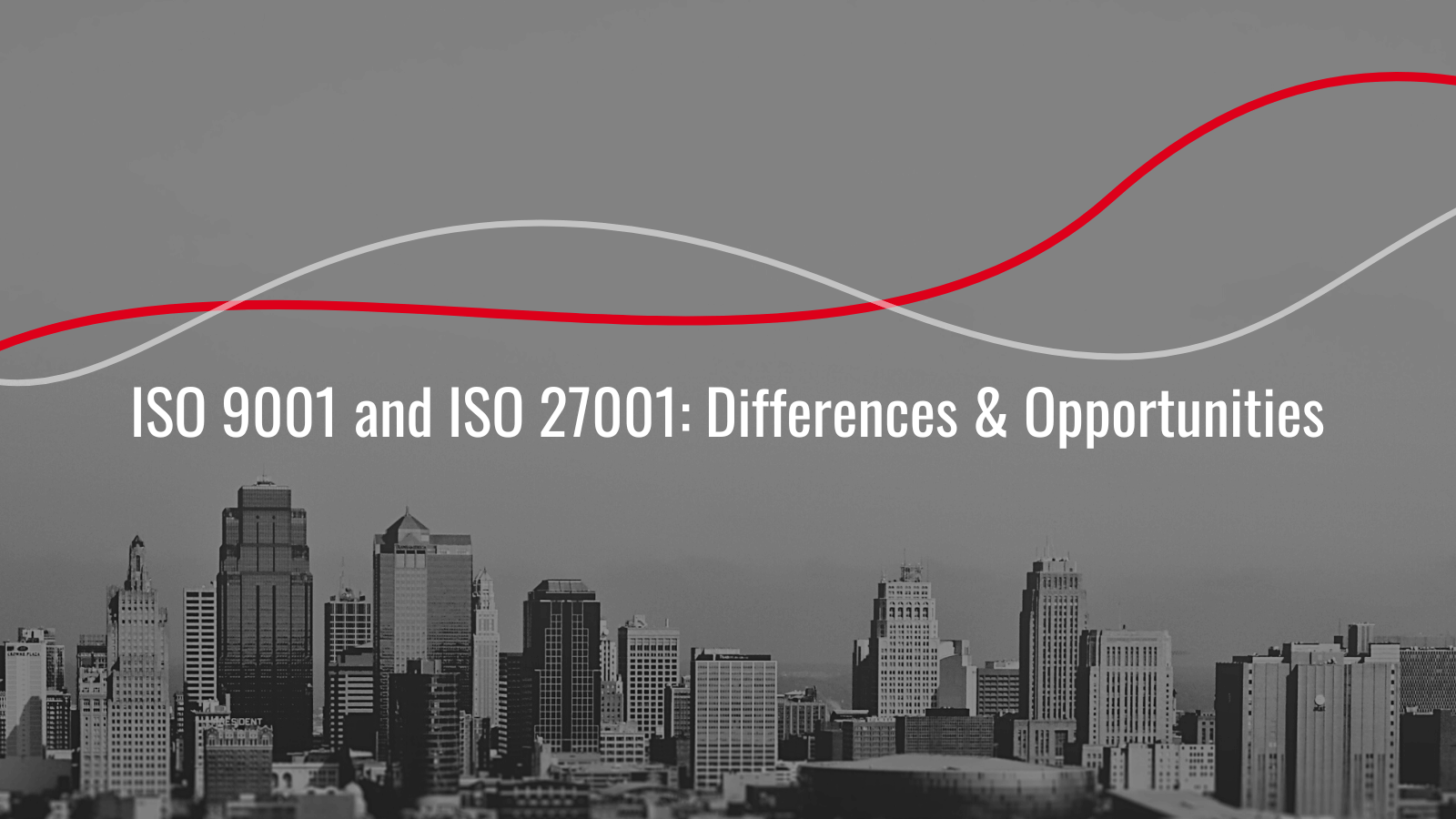What is ISO 27001? Ultimate Guide for 2022
ISO is the International Organization for Standardization. The main purpose of its existence is to simplify a variety of concepts and standardize it
 Organizations must prove they are providing a quality service in today's business environment. To ensure this is achieved, companies shall meet the requirements of ISO 9001 and ISO 27001, respectively. Both standards address the issue of quality management . ISO 9001 focuses on overall production processes while ISO 27001 focuses on environmental management and product compliance. This article examines in detail two standards' similarities, differences, and opportunities.
Organizations must prove they are providing a quality service in today's business environment. To ensure this is achieved, companies shall meet the requirements of ISO 9001 and ISO 27001, respectively. Both standards address the issue of quality management . ISO 9001 focuses on overall production processes while ISO 27001 focuses on environmental management and product compliance. This article examines in detail two standards' similarities, differences, and opportunities.
ISO 27001:2013 is the international standard for information security. It defines the parameters of a system for managing information security (ISMS). ISO 27001 was created to "give a model for establishing, implementing, operating, monitoring, reviewing, maintaining, and upgrading an information security management system," as stated in the standard's description.
Documentation requirements, management accountability, internal audits, CAPA, and other continuous improvement methods are detailed in detail in the specification. Assisting businesses in meeting legal and regulatory obligations and safeguarding their most valuable information is the primary focus of ISO 27001.
Organizations should use the controls outlined in ISO 27001 in a way that is proportional to the risks they face. To achieve ISO 27001 compliance, risk-based specific controls are required thus, third-party authorized certification is encouraged although is not essential.
The key benefits of ISO 27001 acceptance include the following:
ISO 9001 is another international standard developed by the International Organization for Standardization (ISO). It provides criteria for a company's quality management system (QMS) to achieve customer satisfaction through producing goods and services in accordance with statutory and regulatory requirements.
It is an internationally recognized standard for quality management systems and covers the management of all aspects of a business, including "design, development, production, operation, and maintenance." It is often used as a contract selection criterion to determine who will produce the goods or services.
ISO 9001 certified companies prove that they are meeting customer requirements and the standards set by law. This helps companies to retain customers and attract new business by building credibility.
Key benefits resulting from implementation of an ISO 9001 quality management system are:
Both standards are applied to organizations of all sizes. ISO 9001 is a standard that lays out the parameters for quality management system (QMS). Consistently meeting client and regulatory requirements is at the heart of the standard. The guideline also seeks to enhance customer satisfaction by fostering a culture of constant development and listening to comments from existing clients.
ISO 27001 is a standard that helps businesses ensure the security of their information while inspiring trust in their operations. The standard considers potential data security threats such as remote access, media disposal, and mobile devices.
In conclusion, ISO 9001 and ISO 27001 are two closely related management standards, but they address different area of the organization. Many benefits accrue to any company if implementing ISO 9001 and the ISO 27001 standards. Both standards help a business to comply with international laws and regulations, increase revenue, reduce waste, improve processes and resources, prevent or minimize loss of business and increase efficiency. Therefore, ISO 9001 and ISO 27001 should not be considered rivals. They are complementary and can work together to meet a business' goals.